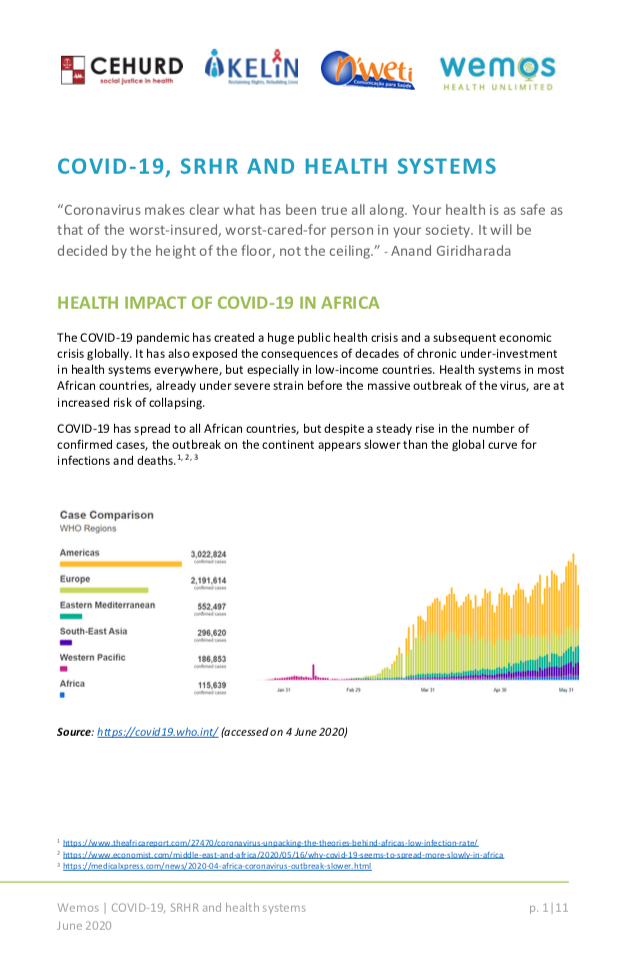“Coronavirus makes clear what has been true all along. Your health is as safe as that of the worst-insured, worst-cared-for person in your society. It will be decided by the height of the floor, not the ceiling.” – Anand Giridharada
The COVID-19 pandemic has created a huge public health crisis and a subsequent economic crisis globally. It has also exposed the consequences of decades of chronic under-investment in health systems everywhere, but especially in low-income countries. Health systems in most African countries, already under severe strain before the massive outbreak of the virus, are at increased risk of collapsing.
COVID-19 has spread to all African countries, but despite a steady rise in the number of confirmed cases, the outbreak on the continent appears slower than the global curve for infections and deaths.

